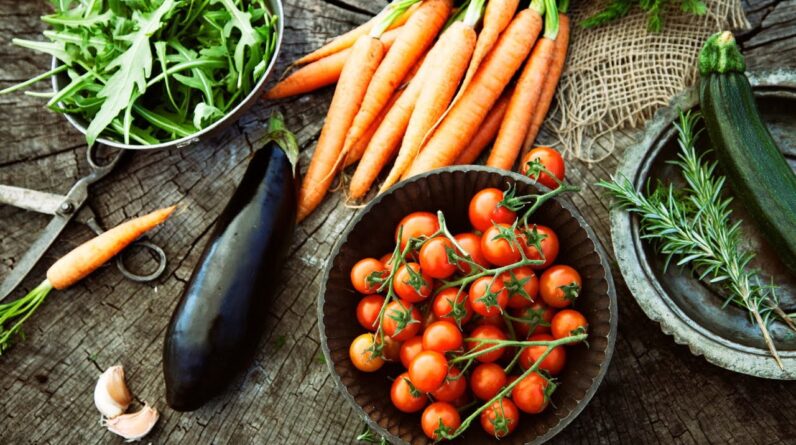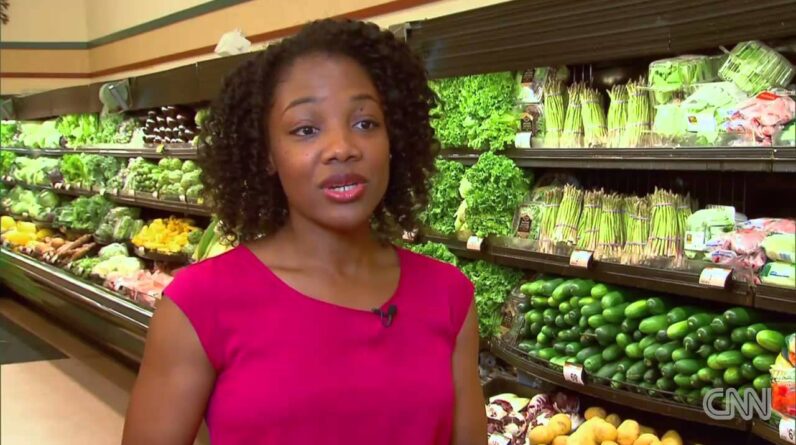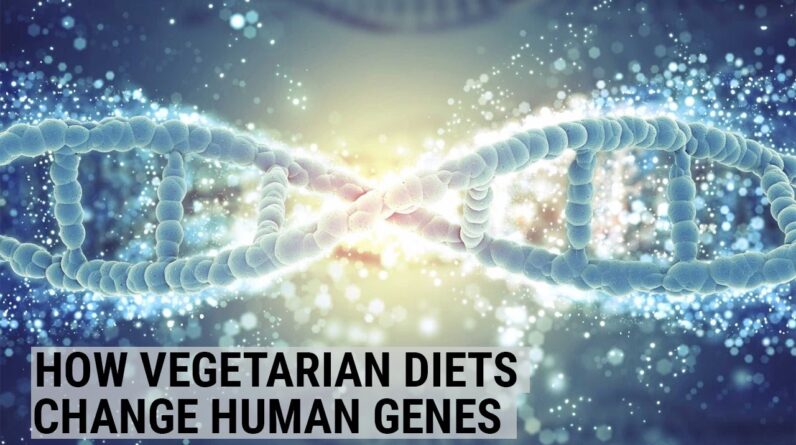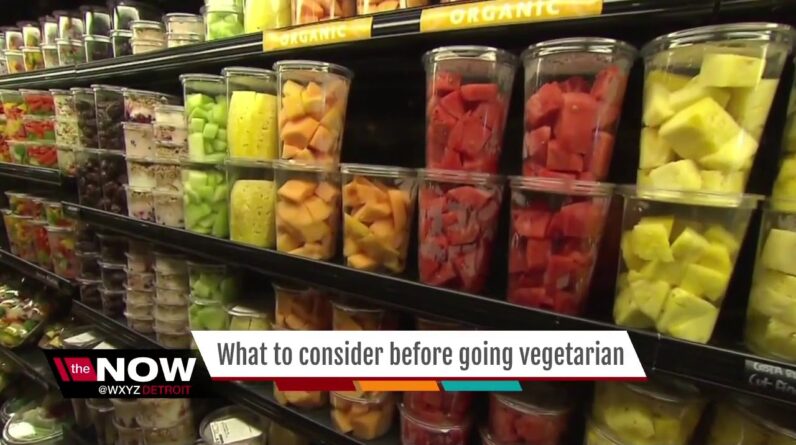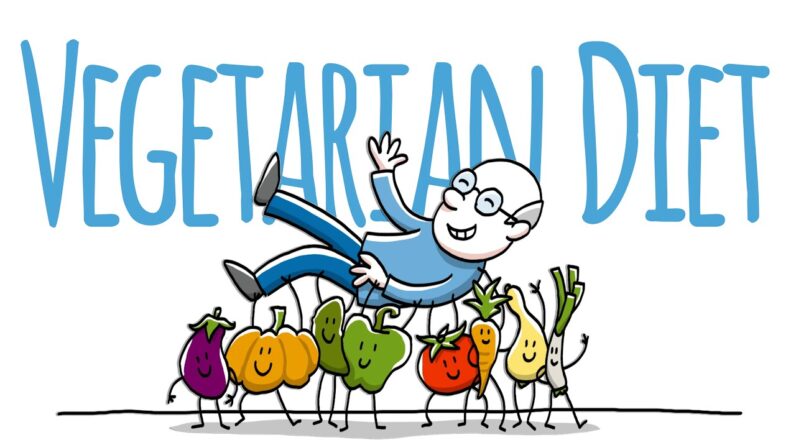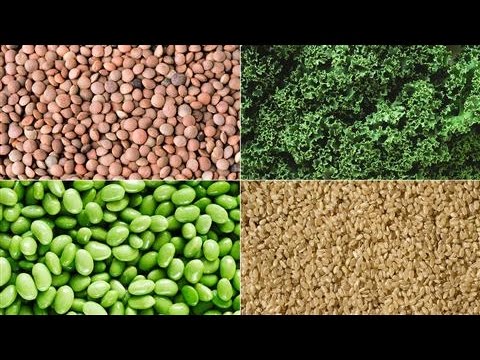
In the video “How Can Vegetarians Get Enough Protein?” by Wall Street Journal, WSJ contributor Heidi Mitchell and nutrition expert Dr. David Sears discuss the concerns many vegetarians have about getting enough protein in their diets. They touch on the obsession with protein in today’s society, the recommended daily intake of protein, and the myth of needing to consume a complete protein at every meal. Mitchell emphasizes that vegetarians can get their protein from sources such as whole grains and legumes, while Dr. Sears mentions the importance of vitamin B12 found in animal products. They also discuss protein bars and the lack of evidence supporting their effectiveness. Overall, this video provides valuable advice for both vegetarians and those interested in maximizing their dietary protein intake.
Many Americans who don’t eat meat worry about their protein intake, but this Wall Street Journal video offers reassurance and guidance. With insights from Heidi Mitchell and Dr. David Sears, viewers learn about the recommended amount of protein, complete proteins from plant sources, and the necessity of vitamin B12 found in animal products. They also address the misconception about protein bars and the need for more research on their benefits. This video provides clear information and helpful tips for individuals looking to get enough protein, whether they are vegetarians or not.
Protein Obsession
Protein has become a hot topic in recent years, with many people becoming obsessed with ensuring they consume enough of this essential macronutrient. With the rise of low-carb diets and the vilification of fats, protein has become the star of the show. But is this obsession with protein warranted, and how much do we really need? In this article, we will delve into the world of protein and explore the recommended daily intake, complete protein requirements, vegetarian protein sources, the role of rice and beans, the importance of vitamin B12, the protein content of cheese, the effectiveness of protein bars, and the vilification of carbs and fats.
Recommended Daily Protein Intake
The recommended daily protein intake for an average adult is approximately 0.8 to 0.9 grams of protein per kilogram of body weight. This means that a person weighing 150 pounds would need around 55 to 60 grams of protein per day. It’s important to note that this recommendation may vary depending on an individual’s specific needs, such as age, activity level, and overall health.
Complete Protein Requirements
There is a common misconception that one must consume a complete protein at each meal or even every day in order to meet their protein needs. However, recent research has debunked this myth. Consuming a variety of plant-based proteins throughout the day can provide all the essential amino acids needed to build and repair body tissues. For vegetarians, incorporating rice, beans, and grains into their diet at various points ensures the consumption of a complete protein.

This image is property of i.ytimg.com.
Sources of Protein for Vegetarians
Vegetarians have a variety of options when it comes to obtaining sufficient protein in their diet. Whole grains, legumes (such as beans), and plant-based protein sources like tofu and tempeh are excellent choices. Nuts, seeds, and certain vegetables also contain protein and can be incorporated into meals and snacks. It’s important for vegetarians to focus on consuming a diverse range of these protein sources to ensure they are getting all the essential amino acids their bodies need.
The Role of Rice and Beans
The combination of rice and beans has long been recognized as a complete protein source. This combination provides all the essential amino acids necessary for the body to function properly. In fact, some cultures, like the Mayans, have thrived on a diet centered around rice and beans. By including these two staples in your diet, you can ensure you’re getting a complete protein without the need for animal-based products.
Vitamin B12 and Vegetarian Diets
One nutrient of particular concern for vegetarians, especially vegans, is vitamin B12. Vitamin B12 is primarily found in animal products, making it challenging for vegetarians to obtain sufficient amounts solely through their diet. While there are vegetarian vitamin B12 supplements available, it’s essential to understand that even these supplements are derived from animals. However, only small amounts of animal products are necessary to meet B12 requirements, so a mostly vegetarian diet can still provide adequate levels of this crucial nutrient.
Cheese as a Protein Source
Cheese is often touted as a protein source by many individuals. While it does contain protein, it is also high in fat and calories. The protein content of cheese varies depending on the type, but it is generally not as high as one might think. It’s important to view cheese as more than just a protein source, as it also contributes to fat and calorie intake. Moderation is key when incorporating cheese into a vegetarian diet.
Protein Bars and Their Effectiveness
Protein bars have gained popularity as a convenient snack or meal replacement option, especially for vegetarians. However, it’s essential to approach them with caution. Many protein bars are akin to fast food, packed with additives and artificial ingredients. Additionally, while they may contain protein, the body may not absorb and utilize it as effectively as it would from whole foods. While protein bars can be a convenient option in certain situations, it’s always best to prioritize whole food sources of protein.
The Vilification of Carbs and Fats
In recent years, carbs and fats have been vilified in favor of protein. However, this vilification is based on questionable science. There is a lack of proper evidence to support the need for excessive protein consumption or the demonization of carbs and fats. It’s important to remember that all macronutrients play a vital role in our overall health and should be consumed in balanced proportions.
Conclusion
While protein is indeed an essential macronutrient, it’s important not to become excessively obsessed with it. The recommended daily protein intake can typically be met through a well-balanced diet, even for vegetarians. By incorporating a variety of plant-based protein sources, such as whole grains, legumes, and vegetables, vegetarians can get the protein they need. It’s also crucial for vegetarians to pay attention to other important nutrients, such as vitamin B12. Protein bars and cheese can be part of a vegetarian diet, but they should be consumed in moderation. Finally, it’s essential to remember that a balanced approach to nutrition, including all macronutrients, is key to overall wellbeing.

